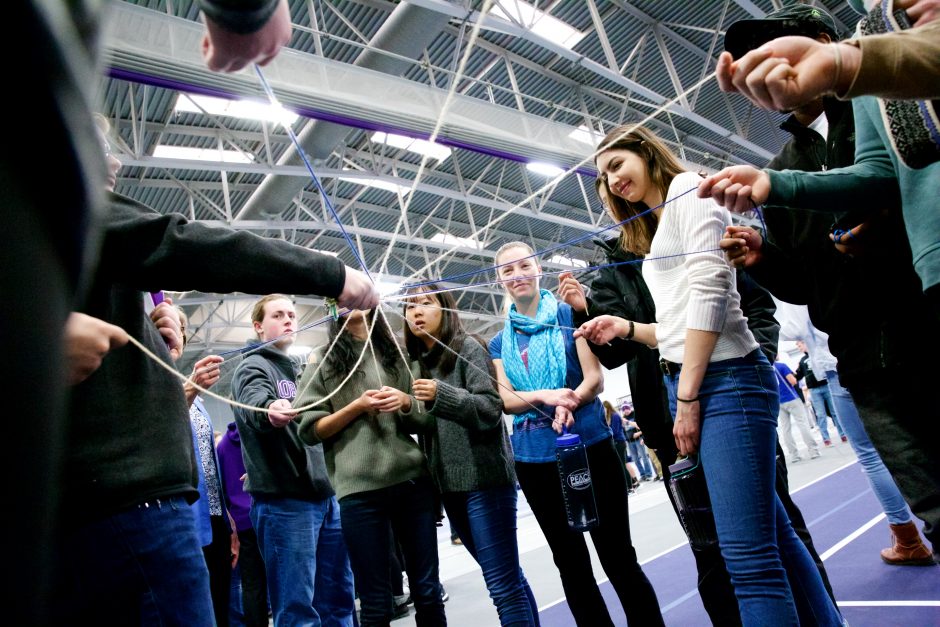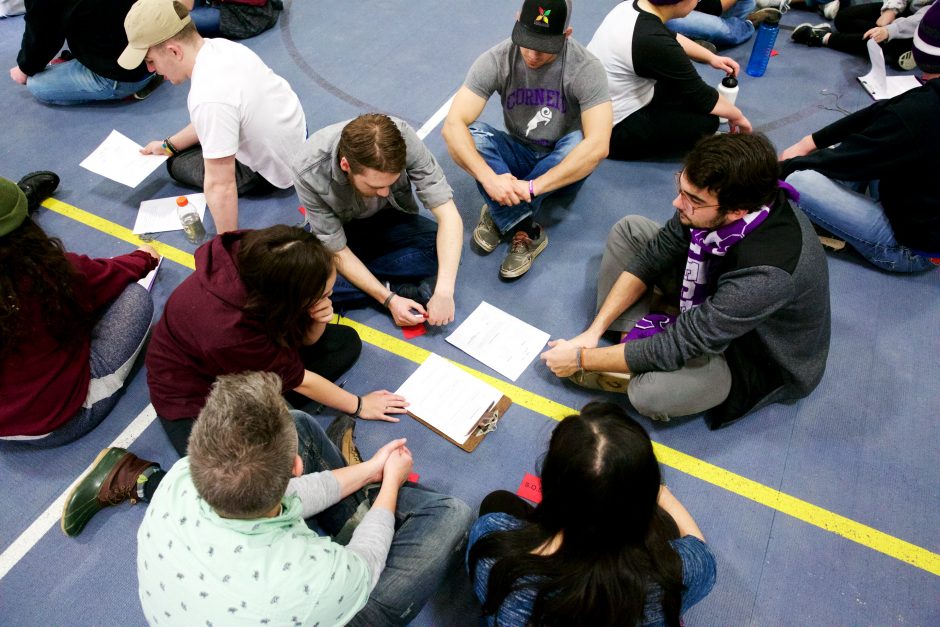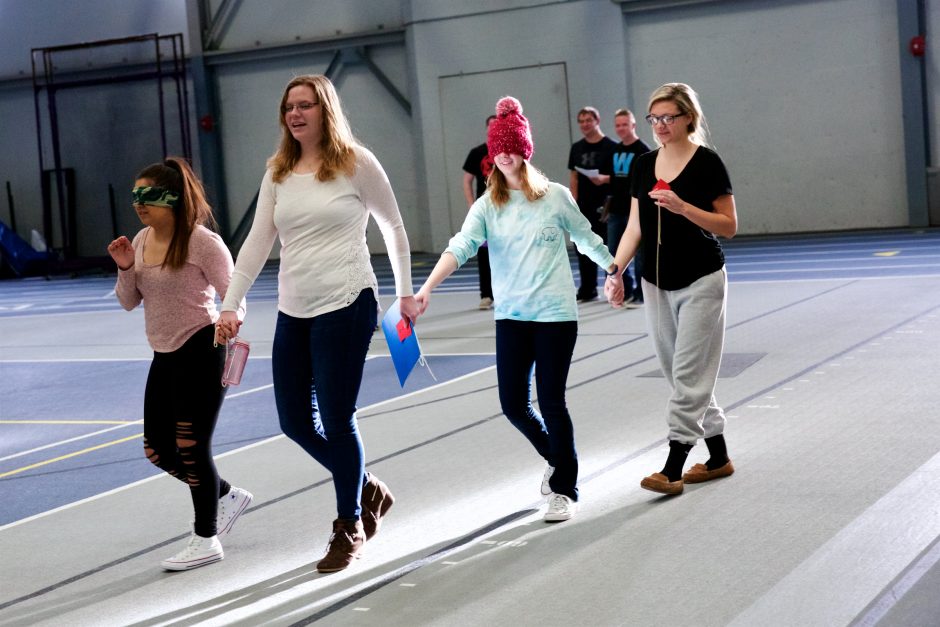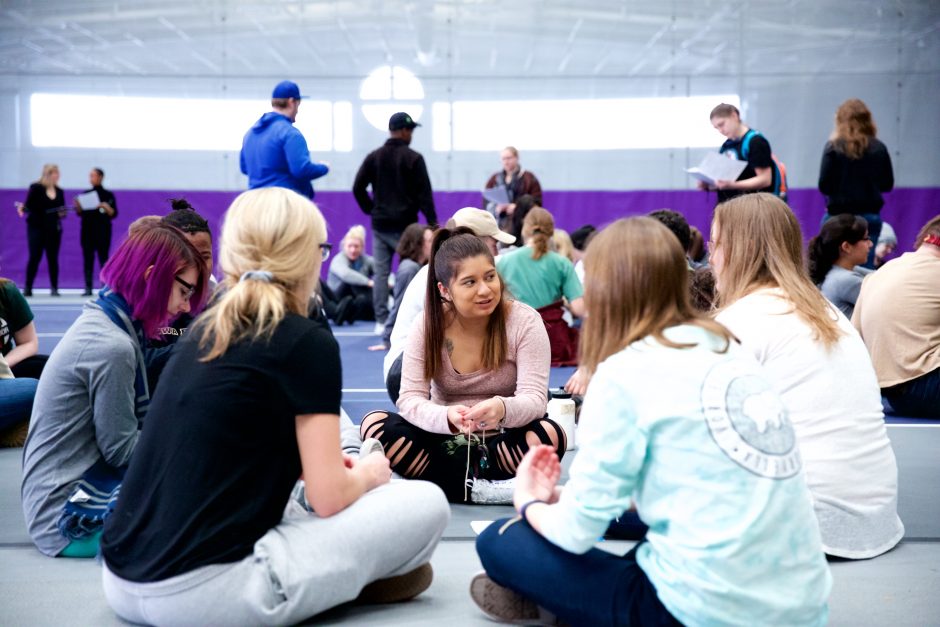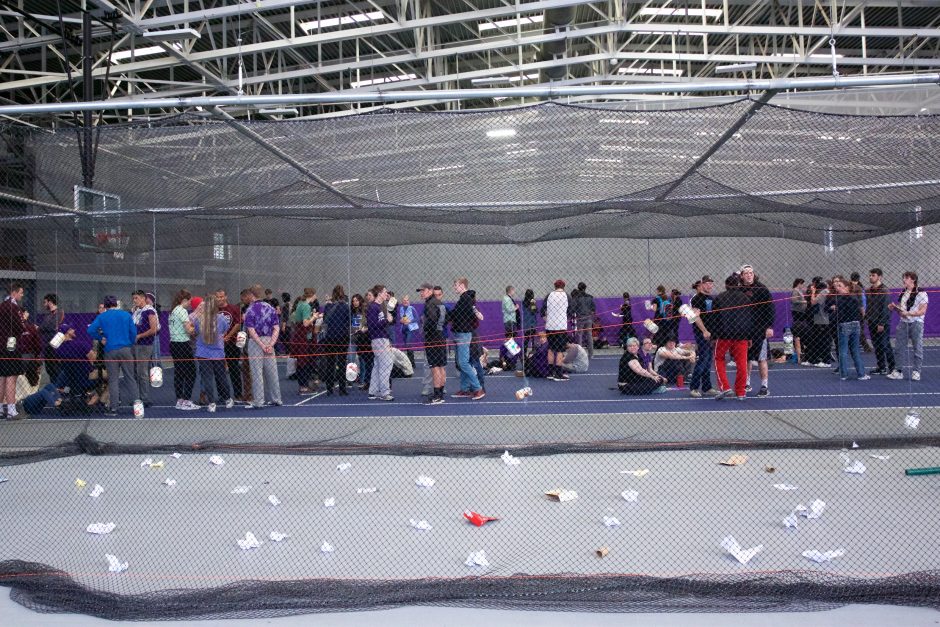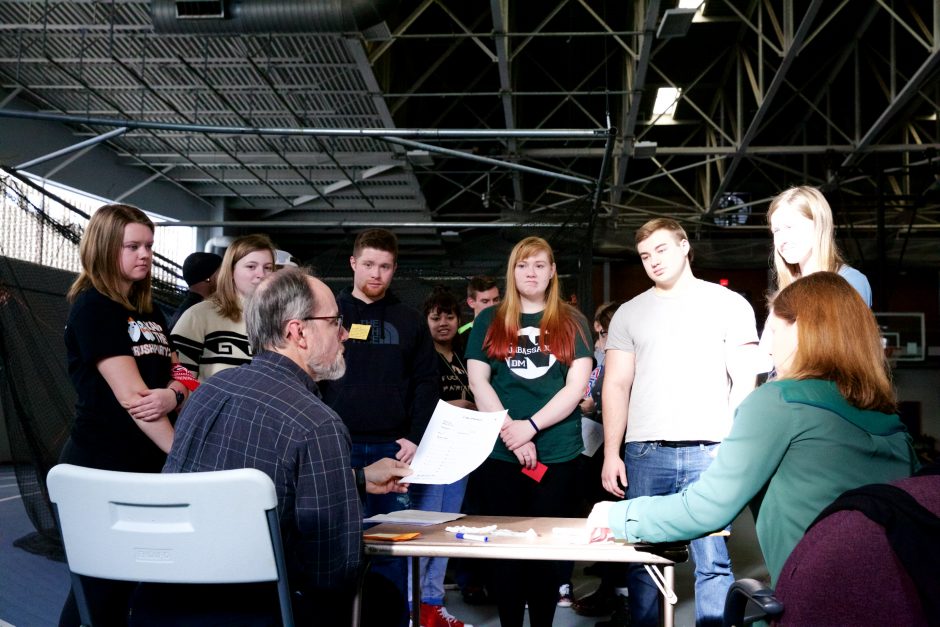Students take on refugee role in simulation
Cornell College students stepped out of their own shoes and into the world of a refugee for a simulation Block 5.
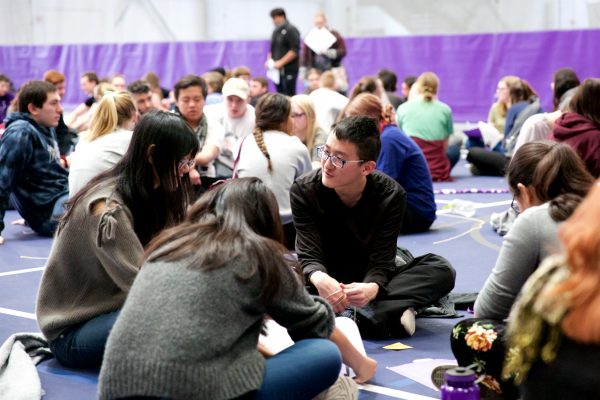 The Social Justice Initiative, which consists of the Offices of Spiritual Life, Intercultural Life, and Civic Engagement, organized a refugee simulation. The United Nations High Commissioner for Refugees devised the educational tool to provide a better understanding of the life of a refugee.
The Social Justice Initiative, which consists of the Offices of Spiritual Life, Intercultural Life, and Civic Engagement, organized a refugee simulation. The United Nations High Commissioner for Refugees devised the educational tool to provide a better understanding of the life of a refugee.
“This event was not to advocate for or against the status of refugees in the U.S. or around the world but to share insight to an experience many of our students cannot comprehend,” said Civic Engagement Coordinator Samantha Hebel.
About 150 students and faculty participated in the three-hour simulation held in the Small Multi-Sport Center. Organizers said the main goal was for students to learn empathy.
“News of war and refugees are plentiful, but there is not a lot of time spent on going through the process of becoming a refugee or the struggles that individuals and families face,” Hebel said. “Often, choosing to leave your country is not a decision that happens overnight, and seeking refugee is not as simple as crossing a border.”
Participants went through 10 different exercises in which they needed to decide to leave their home country, adjust to living in a refugee camp, apply to live in a new country, cross the border, and learn about the difficulties associated with paperwork and border patrol agents.
“The ‘border patrol’ part of the simulation was the most impactful for me because it was the most frustrating,” said Talitha McGuire ’19, who participated in the simulation. “We had no idea why we were denied from the border and no indication of how to move forward. It was like we couldn’t win no matter what we tried.”
The Social Justice Initiative scheduled the event at the end of Martin Luther King Jr. Week on the Cornell College campus.
“By putting this event in MLK Week, we hoped to show that MLK’s messages and ideals are relevant today,” Hebel said. “The week was about sharing MLK’s messages of peace, hope, and equality, and we felt a better understanding of the refugee experience directly falls in line with that message.”

